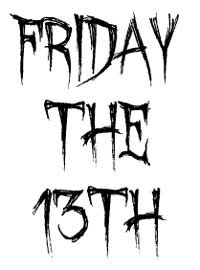Friday the 13th

January 17, 2017
Friday the 13th had been known as an “unlucky” days for years, but is it really? Some people believe that it is such an unlucky day that they will avoid traveling or any business inquiries while other people laugh at the superstitious of it.
How did Friday the 13th come about? No one knows when people started fearing this date but it dates back past the 19th century. There are actually multiple reasons as to why some may fear Friday the 13th.
There is reportedly no written evidence of Friday the 13th superstition, but superstitions surrounding the number 13 date back to at least 1700 BC. In the ancient Babylon’s Code of Hammurabi, dating to about 1772 BC, the number 13 is omitted in the list of laws.
There has also been a myth that if 13 people dine together, one will die within a year. The myth comes from both the Last Supper, when Jesus dined with the 12 Apostles prior to his death, and a popular Norse myth, in which 11 close friends of the god Odin dine together only to have the 12-person party crashed by a 13th person, Loki, the god of evil and turmoil.
In fact, the number 13 has been considered cursed across the world for thousands of years. The number 13 continues to be unlucky today. Thirteen is so disliked that many cities do not have a 13th Street or a 13th Avenue, many high-rise buildings avoid having a 13th floor, some hospitals avoid labeling rooms with the number 13 and many airports will not have a gate 13.
With that being said there are multiple reasons as to why people fear Friday the 13th. Even though there is no actual proof to it being a bad day, people dislike the day because of the myths that have carried on through centuries about the number 13.

